
The Margalla Hills are no stranger to the destructive touch of machines. For over three decades, stone crushers have eaten away at the hills, quarrying, drilling, blasting and crushing rocks into fine gravel that goes into building roads and highways.
But with both the natural habitat of the Margalla Hills National Park (MHNP) and the air quality of the surrounding areas at risk, environmental watchdogs are up in arms against the stone crushers. They want the crushers to adopt eco-friendly measures or better still, go away for good.
On the other hand, the crushers’ union claims thousands will be laid off and construction material will become scarce if their operations are shut down. In the ensuing tussle, both enforcers and violators look towards the policymakers, who seem to have fallen asleep since passing the environmental laws.
Last month, a tribunal heard cases against stone crushers operating in Taxila without approval from the Punjab Environment Protection Agency (EPA), at Rawalpindi commissioner’s office.
“I only run the machine for four hours during the night, just to provide a living for my employees,” Safdar Shah told the three-member Environmental Protection Tribunal.
“We were not informed that a No Objection Certificate (NOC) was needed before starting the projects,” Margalla Stone Crushers’ Association General Secretary Raja Gulnawaz Abbasi said.
However, the Rawalpindi District Environment Office (DEO) Secretary Shaukat Hayat denied this claim.
The next day, the stone crushers’ pleas to get off easy were denied. Six of them were fined Rs30,000 each and given two months to come into compliance or face an additional Rs1,500 fine per day after the deadline.
It was a small victory for Hayat and his colleagues who were trying to curb dust and harmful emissions generated by over 100 Taxila stone crushers working in western MPNH, most of which never submitted an environmental examination report to the Punjab EPA for approval.
Another 16 stone crushers operate illegally in the MHNP inside the Islamabad Capital Territory (ICT), Pakistan Environment Protection Agency (Pak-EPA) Director General Asif Shuja said. These crushers violate the Islamabad Wildlife Ordinance 1979 which prohibits clearing land for mining in a national park.
The Pak-EPA launched two operations against stone crushers over the last decade, requesting the power company to cut the crusher’s electricity and wrote to ICT administration several times, but the stone crushers are still at work.
Some environment officers claim the stone crushers have political backing and the provincial EPAs lack capacity. For example, the DEO is taking on environmental pollution with only three field officers and the Punjab government’s allocation for environment is just 0.14 per cent of its total 2012-13 Annual Development Programmes budget.
Lack of coordination between the Punjab Department of Mines and Minerals, which issues leases for stone crushing, and the Punjab EPA also creates an enforcement challenge.
Abbasi said the Taxila stone crushing industry employs 20,000 people, none of whom have ever fallen sick due to air pollution. But the studies conducted by the DEO and Pak-EPA since 2010 show particulate emissions from stone crushing are 33 to 40 times more than the environment quality standards.
The crushing activity also destroys the natural habitat for the 38 species of mammals and over 600 plant species in the MHNP, Shuja said.
The DEO proposed the use of wet scrubbers and sprinklers to suppress dust from crushers but some of these solutions require ample water and costs might run around Rs200,000 per system.
Government subsidies on remedial measures might help, but in most government policies, the stakeholders were not taken on board before the laws were passed.
The stone crushers are now pushing for a meeting with the Punjab EPA to voice their concerns before the next tribunal hearing in April. In the meanwhile, the DEO wants to capitalise on the tribunal’s verdict and prevent air quality degradation by moving cases against more stone crushers.
Published in The Express Tribune, March 10th, 2013.

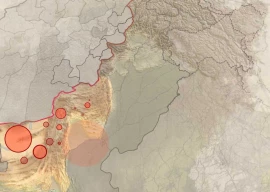
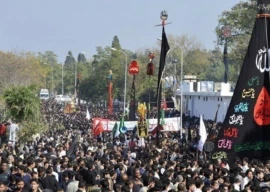

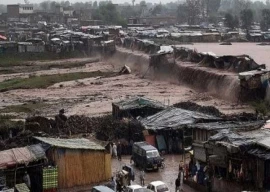


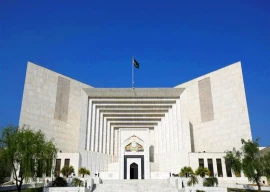
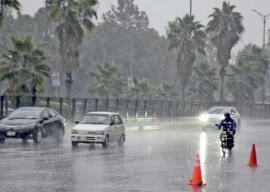







COMMENTS
Comments are moderated and generally will be posted if they are on-topic and not abusive.
For more information, please see our Comments FAQ